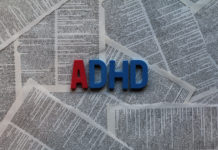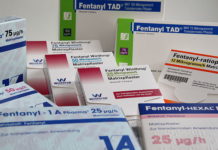Third Time Lucky: Open Dialogue and Finding Meaning in My Inherited Trauma
A year after my twin’s death, I stood in a supermarket and felt my body disintegrating into a thousand pieces. My soul knew it needed the right teacher and helper. Fortunately, I found Open Dialogue. It helped me expose the real childhood trauma, and gradually rebuild my shattered, grief-stricken psyche.
Are Antidepressants Enabling the Population to Tolerate the Intolerable?
Just how sad is our current state of affairs that it causes so much of the population to feel depressed and/or anxious? Just how much are these drugs changing the state of our society as a whole? Are the drugs desensitizing the population to the point that it will tolerate social conditions it would otherwise find intolerable?
My Son and the “Mental Health” System
As a father whose 27-year-old son is trapped in the mental health system, I am painfully aware that I have been unable to protect him. At age 19, my son naively told his mother and his doctor that he was hearing voices, marking the beginning of a hellish nightmare which he is still unavoidably immersed in. I would like to explain my perspective on why this is the case.
Children Taking ADHD Drugs More Likely to Take Antidepressants as Teens
Adhering to a commonly prescribed medication for ADHD in children is associated with higher chances of being prescribed antidepressants in adolescence.
Teacher Wellbeing Matters for Student Mental Health
Teacher’s personal wellbeing plays a role in students’ mental health outcomes, suggests a new study.
Mad Science, Psychiatric Coercion and the Therapeutic State: An Interview with Dr. David Cohen
MIA's Peter Simons interviews David Cohen, PhD, on his path to researching mental health, coercive practices, and discontinuation from psychiatric drugs.
Recovery Versus Mad Pride: Exploring the Contradictions
What would mental health treatment look like if it balanced an awareness of the need for “recovery” with an awareness that people also sometimes need to go “out of their minds” to resolve problems that they haven’t been able to solve otherwise, or maybe that their entire culture has not been able to face and resolve?
Exposure to Antidepressants in the Womb Linked to Autism
Researchers, publishing in Toxicology Research, review the evidence that antidepressant exposure in the womb is linked to autism spectrum disorders (ASD) in humans.
De-Othering “Schizophrenia” by Placing it in Socio-Historical Context
Understanding schizophrenia as a non-enigmatic, understandable human experience goes against a history of institutional “othering” that has sustained psychiatric legitimacy and further marginalized service-users.
Stop Shocking and Torturing Women – My Sisters
Think of all those women who have undergone or will undergo electroshock and suffer severe losses in memory, intelligence, special skills, creativity. Women too disabled by shock to pursue promising careers. Women who suddenly die after being shocked. Electroshock is torture, and informed consent in psychiatry is a myth and a lie.
Reflections on 25,000 Hours of Being With People in Extreme States
Being with someone in an extreme state or other emotional pain, it feels like we’re two young friends who have ridden our bikes to a quiet place by the river and my friend turns to tell me about awful things happening at home — and they cry or yell in anger while I sit there and wonder what to say or do, and realize that just being quiet is okay.
Thought About Killing Yourself Lately? It’s Not All In Your Head
As the world economic leader in GDP at $24 trillion per year, the United States has had steadily rising suicide rates for nearly two decades, though when compared to other economic leaders such as France, Germany, Japan, India, the UK and Italy, it remains the outlier; the rest have dropped. Why is the United States unique in its degree of misery?
Increase in Suicide Attempts by Self-Poisoning in Youth
Researchers shed light on hike in attempted suicide by self-poisoning in young adults between 2011 and 2018.
On Human Nature and Its Implications for the Mind-Body Problem
Peter Hacker's magnum opus explores what it means to be human via an analysis of the language we use. Through disclosing the conceptual framework within which we think, act and come to know things, our deep and implicit understanding of ourselves and our world is revealed.
Mobile Apps for Mental Health Lack Transparency in Data Sharing
Research illustrates privacy concerns with how mental health applications collect and share users’ data.
Fighting for the Meaning of Madness: An Interview with Dr. John Read
Akansha Vaswani interviews Dr. John Read about the influences on his work and his research on madness, psychosis, and the mental health industry.
The Answers in the Attic: A Mother-Daughter Story of Overmedication and Recovery
In 1959, my mother suffered what people referred to as a nervous breakdown after my sister’s birth. I puzzled over why Mom never recovered, until I found Dad’s collection of medical records in my sister’s attic. How could anyone give a nursing mother with three small children so many drugs in such a short period of time?
Exposure to Antidepressants in the Womb Linked to Autistic Behavior in Mice
Researchers experimenting on mice found that exposure to fluoxetine (Prozac) in utero resulted in behaviors considered in animal studies to be analogous to autism in humans.
Service-Users See Long-Term Antipsychotic Use as Compromising Recovery, Review Finds
A new meta-review examines the experiences of antipsychotic drugs use among people diagnosed with a psychotic disorder.
Forced Drugging with Antipsychotics is Against the Law: Decision in Norway
In all countries, we need to work for ensuring that forced medication for psychiatric patients is forbidden by law. Virtually all countries, apart from the US, have ratified the UN Convention on the Rights of Persons with Disabilities, which prohibits forced drugging, but not a single country has done anything.
A Deeper Dive into System Change in the Mental Health Paradigm
For the past several years, my blogs have centered on how policy can affect practice, especially in public mental health systems. But I haven't taken a deeper dive into strategies, especially focused for advocates who seek significant and even radical changes. I think it's now time.
Study Reveals Inconsistency in ADHD Diagnostic Determinations
Researchers compare differences between research and clinical diagnoses of ADHD and explore the consistency of clinical determinations over time
Researchers Find Bias in Industry-Funded Continuing Medical Education
Industry-funded continuing medical education (CME) influences physicians to prescribe more opioids, focus less on the consequences.
Sodium Nitroprusside Shows No Efficacy in Schizophrenia Treatment
Researchers question biases of preliminary trials that found that sodium nitroprusside, an antihypertensive drug, has positive effects on schizophrenia symptoms.
Snapshots of Spring: Journeying Off Psych Meds After 20 Years of Compliance
My prayer to be taken out of my misery was answered, just not the way I used to envision. I managed to escape the system and here I am in the same lifetime, alive and well. I’m slowly getting acquainted with this new setup and am eternally grateful for yet another opportunity at life, which I hope does not slip through my fingers.

































